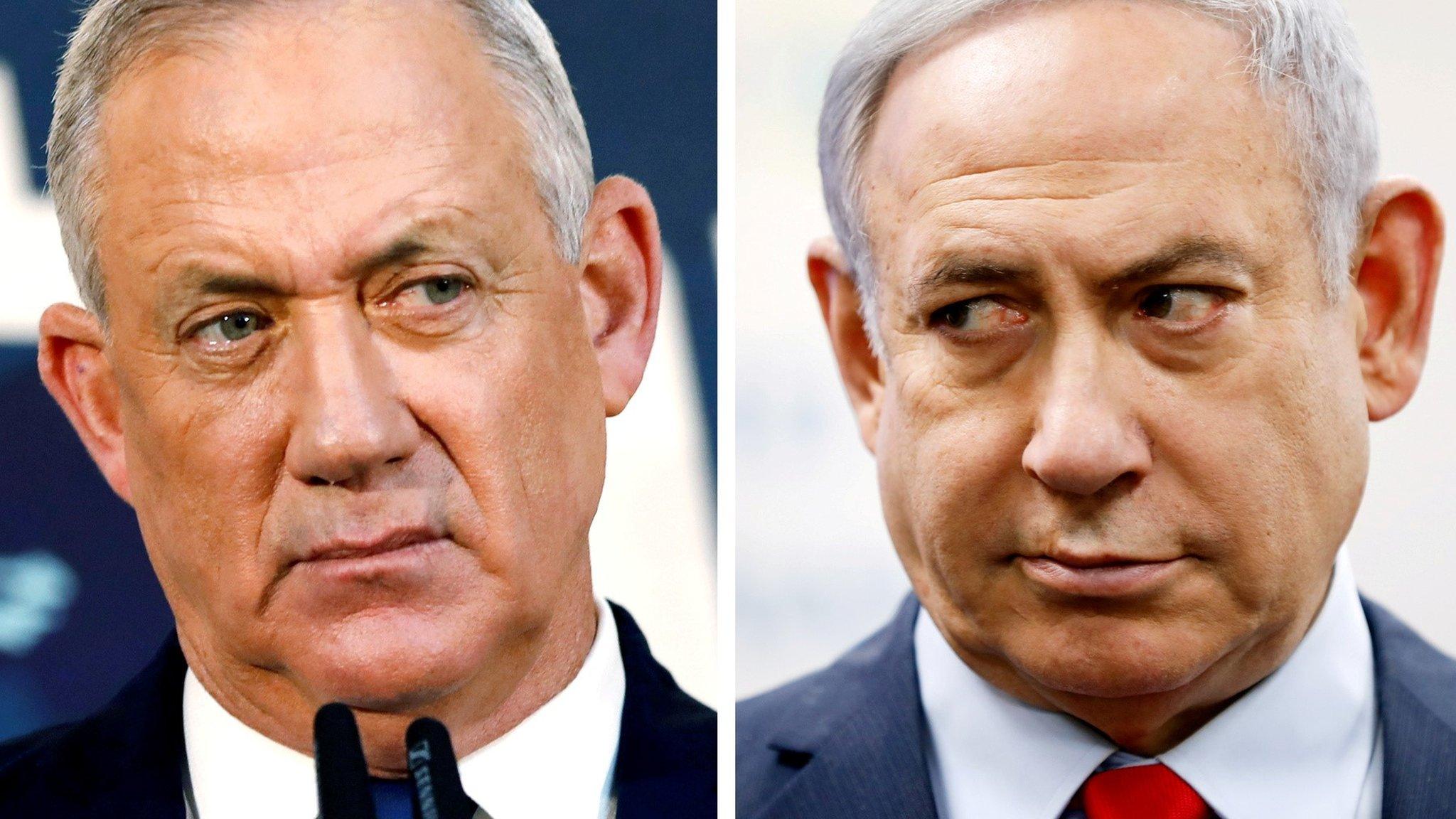Palestinians 'ending accords with Israel and US' over annexation plan
- Published
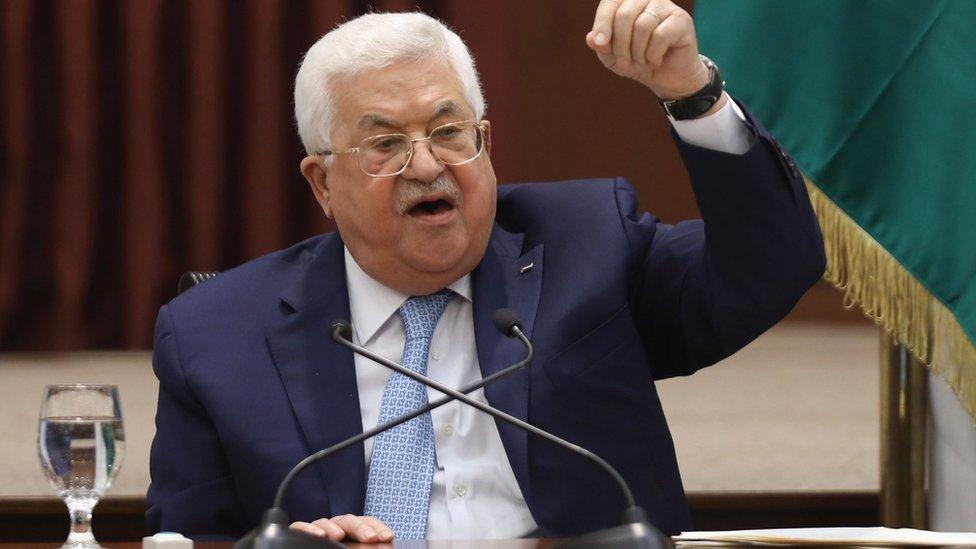
President Mahmoud Abbas has made previous threats to scrap agreements with Israel
Palestinian Authority President Mahmud Abbas has said he is ending "all agreements" with Israel and the United States in response to Israeli plans to annex parts of the occupied West Bank.
Israel would now have to "bear all responsibilities... as an occupying power", Mr Abbas said.
Similar warnings in the past have ultimately not been followed through.
Prime Minister Benjamin Netanyahu wants to apply Israeli sovereignty to Jewish settlements and the Jordan Valley.
The move would be in line with US President Donald Trump's "vision for peace" between Israel and the Palestinians, which was unveiled in January.
Mr Trump's plan also envisages a Palestinian state in about 70% of the West Bank, all of Gaza, and with its capital on the fringes of East Jerusalem.
The Palestinians - who claim all of the West Bank, Gaza and East Jerusalem - have dismissed the plan as biased towards Israel and a denial of their rights.
Israel has occupied the territories since the 1967 Middle East war. More than 600,000 Jews live in about 140 settlements in the West Bank and East Jerusalem. Most of the international community considers the settlements illegal under international law, though Israel disputes this.
After a meeting of the Palestinian leadership in Ramallah on Tuesday night, Mr Abbas said: "The Palestine Liberation Organisation and the State of Palestine are today no longer bound by all agreements and understandings with the American and Israeli governments, and by all the commitments derived from those understandings and agreements, including those relating to security.
"From now on the Israeli occupation authorities must bear all responsibilities and commitments toward the international community as an occupying power."
The BBC's Tom Bateman in Jerusalem says such a move, if implemented, could trigger dramatic changes on the ground in the West Bank, where accords dating back two decades affect the daily lives of Palestinians and help prop up an internationally recognised leadership.
Among the most sensitive is security co-ordination between Israel and the Palestinian Authority, our correspondent adds.
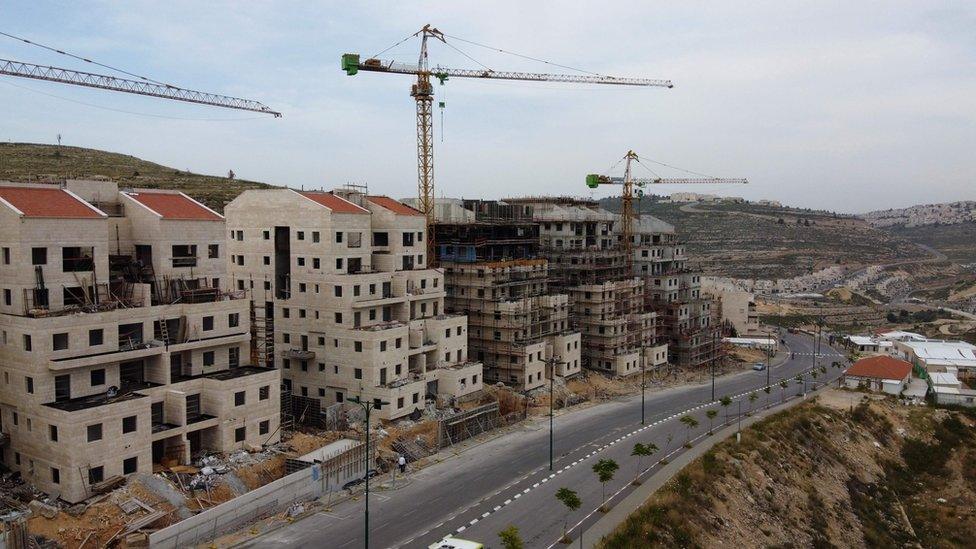
Most of the international community considers Israeli settlements illegal under international law
Mr Abbas has made previous threats to scrap the agreements, ultimately not delivered upon. But this latest involved some of the toughest rhetoric yet.
A senior Palestinian official told the BBC the threat was serious, and that a committee would discuss implementation. However, it is understood no new orders have been received so far by security forces on the ground.
Mr Abbas also called on other countries to impose "serious sanctions" on Israel if Mr Netanyahu's new coalition government proceeded with its annexation plan.
(January 2020) Why Trump's Middle East plan is so divisive
On Friday, the European Union's foreign policy chief, Josep Borrell, made clear that it opposed any unilateral action being taken with regard to the West Bank, external. He said the bloc would use all of its "diplomatic capacities" to prevent it and ensure international law was upheld.
King Abdullah II of Jordan, one of only two Arab states to have signed a peace treaty with Israel, meanwhile warned of the potential consequences.
"What would happen if the Palestinian National Authority collapsed? There would be more chaos and extremism in the region. If Israel really annexed the West Bank in July, it would lead to a massive conflict with the Hashemite Kingdom of Jordan," he told Der Spiegel magazine, external.
- Published17 May 2020
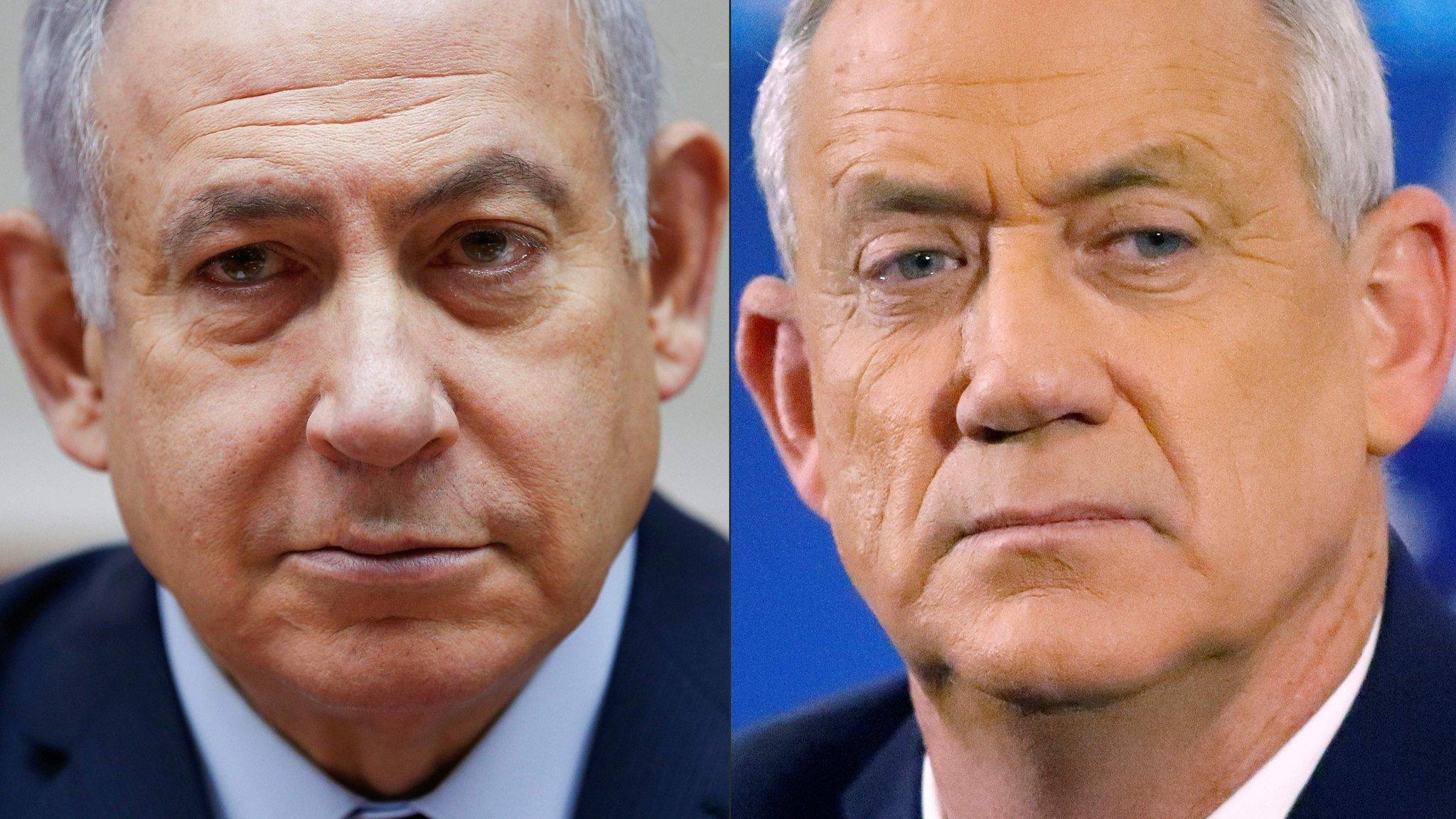
- Published22 April 2020
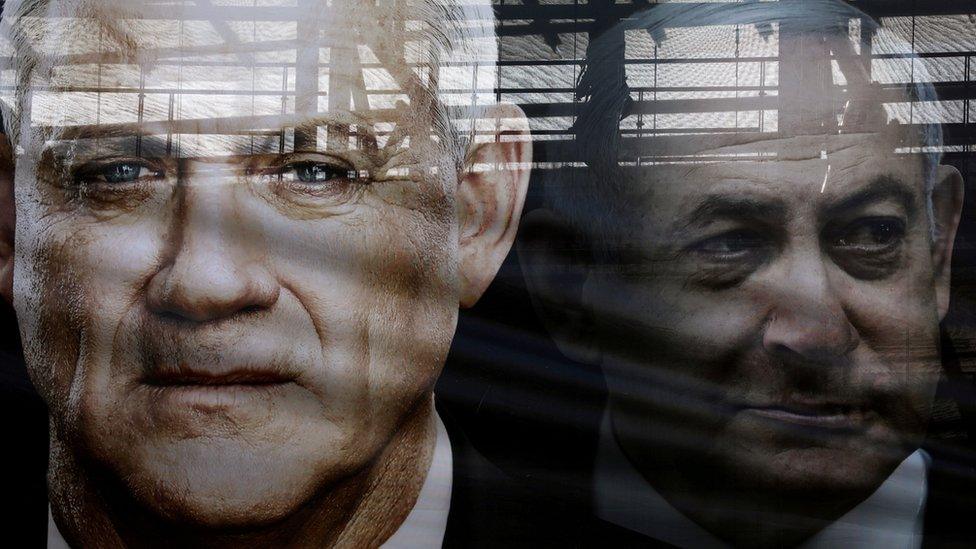
- Published20 April 2020
